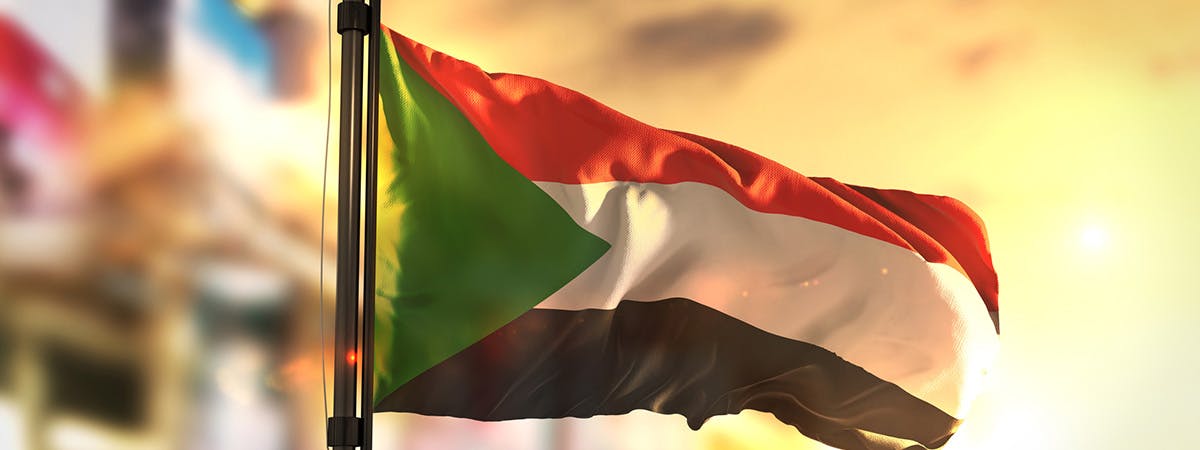This stakeholder report submitted to Sudan’s third cycle UPR is led by Dr Amna Nazir and builds upon our 2016 work with the Sudanese Human Rights Initiative in the UN, and our work under Foreign and Commonwealth funded projects in Sudan.

Researchers
- Dr Amna Nazir
- Dr Alice Storey
- Professor Jon Yorke
- Sudanese Human Rights Initiative
Consultancy background
The CHR has worked with the Sudanese Human Rights Initiative (SHRI) in Khartoum to help improve access to justice, freedom of religion, and provide capital defence in death penalty cases. The work has benefitted from three Foreign and Commonwealth Office, Development Grants, “Freedom of Religion and Belief” (2015-2016), “Promoting Freedom of Religion in Sudan,” (2019-2020), and “Strengthening Access to Justice and Safeguarding Human Rights in Sudan: A Strategic Capacity Building Package to Support the National Transition under the 2019 Draft Constitutional Declaration,” (2019-2020).
During the presession of the 25th Session of the UPR in Geneva in March 2016, we worked with UPRinfo, the International Federation for Human Rights, and African Center for Justice and Peace Studies.
We formed a cross-regional statement bringing to the attention of the presession of the Sudanese governmental prevention of some civil society organisations from attending the meeting. This unacceptable actions of the Sudanese government were highlighted by the Secretary General, Ban Ki-moon, in his report, Cooperation with the United Nations, its representatives and mechanisms in the field of human rights, Human Rights Council, 33rd Session, 14 August 2016.
In March 2021, the UPR Project at BCU and Sudanese Human Rights Initiative submitted a joint report to Sudan’s third cycle UPR. This Stakeholder Report focuses on four themes: (1) capital punishment; (2) unlawful detention and torture; (3) freedom of religion or belief; and, (4) impunity for state actors. We make specific recommendations on these key human rights issues.
Download the stakeholder report
On the 13 August 2021, the UN’s Office of the High Commissioner for Human Rights published its Stakeholder Summary Report for Sudan, citing the UPR Project at BCU and SHRI’s submission:
“JS21 noted that the legal conditions of arrest, whether undertaken by the police or by General Intelligence Services (GIS), remained a cause for concern. JS21 recommended to provide a public clarification of the extent of the powers of GIS office.” (para 32)
The outcome of the review was published on 20 April 2022 in the report of the Working Group. The report stated that the Member State recommendations on the death penalty, unlawful detention and torture and impunity for State actors, will be examined [and Sudan] will provide responses in due time, but no later than the fiftieth session of the Human Rights Council.
The Member States recommendations in the Third Cycle to be examined by Sudan were:
- Second Optional Protocol to the International Covenant on Civil and Political Rights, aiming at the abolition of the death penalty (Recommended states: Chile (137.7); Lithuania (137.8); Sierra Leone (137.9); Paraguay (137.11); Namibia, Slovenia & Armenia (137.45); Canada (137.47); Uruguay (137.54); Argentina (137.56); Latvia, Iceland & Italy (137.48)
- Consider imposing a moratorium on the death sentence with a view to abolishing the death penalty (Recommended states: Georgia (137.111); Spain, Australia & Portugal (137.112); Switzerland (137.113); Latvia, Iceland & Italy (137.48)
- Abolish the death penalty (Recommended states: Liechtenstein (137.114); Marshall Islands Estonia (137.115); Côte d’Ivoire (137.116)
- Ratify the remaining key international human rights instruments, including the Optional Protocol to the Convention against Torture and Other Cruel, Inhuman or Degrading Treatment or Punishment (Recommended states: Czechia (137.2); Liechtenstein (137.4); Lithuania (137.8); Denmark & Lebanon (137.44); Côte d’Ivoire (137.49); Armenia (137.50); Togo (137.53); Italy (137.55); Argentine (137.56)
- Abolish all forms of torture, in particular flogging as a form of punishment (Recommended state: Switzerland (137.123)
- Ratify the Rome Statute of the International Criminal Court (Recommended states: Paraguay (137.11); Latvia (137.39); Liechtenstein (137.40); Malta (137.41); Uruguay (137.42); Belgium (137.43); Sweden (137.51)
- Continue the cooperation with the International Criminal Court and Address impunity for human rights violations (Recommended states: Ireland (137.134); France (137.138); Liechtenstein (137.40); Malta (137.41); Belgium (137.43); Sweden (137.51); Lithuania (137.137); France (137.138); Switzerland (137.139)
These Member State recommendations are consistent with the categories of recommendations identified in the Joint UPR Project at BCU’s Stakeholder Report for Sudan’s UPR.
In March 2022, Dr Nazir presented a research seminar with SHRI on their joint UPR submission, including key findings and the outcome of the (delayed) review held on 9 February 2022. The team also discussed the ongoing advocacy work they are involved in, beyond the UPR, to safeguard human rights in Sudan especially in light of the October 2021 military coup which plunged the country into turmoil and triggered countless protests. For more info on the seminar, click here.
About the UPR Project at BCU
The Centre for Human Rights (CHR) has been engaging with the Universal Periodic Review (UPR) since 2016. Under the auspice of the Human Rights Council, the UPR is an intergovernmental process providing a review of the human rights record of all Member States.
Through the UPR Project at BCU, the CHR we engage with the UPR through taking part in the UPR Pre-sessions, providing capacity building for UPR stakeholders and National Human Rights Institutions, and the filing of stakeholder reports in selected sessions. The UPR Project is designed to help meet the challenges facing the safeguarding of human rights around the world, and to help ensure that UPR recommendations are translated into domestic legal change in member state parliaments.
We fully support the UPR ethos of encouraging the sharing of best practice globally to protect everyone's human rights.The UPR Project at BCU engages with the UPR regularly as a stakeholder, having submitted numerous reports and been cited by the OHCHR.